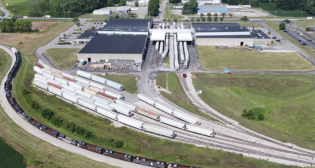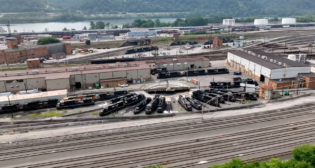
Amtrak: Freedom From Responsibility is Illusory
Written by David Nahass, Financial EditorTHE FINANCIAL EDGE, MAY 2019 – In a recent TED talk, Twitter CEO Jack Dorsey suggested that, in an attempt to combat abusive speech and harassment, Twitter would consider moving from threads written by individuals to topic threads. Dorsey suggested these interest networks would be easier to monitor for Twitter code of conduct breeches.
If Twitter implements this strategy, among all the other relevant categories important to the Twitterverse such as Beyoncé, the President of the United States, and NFL players and the fan bases that love/hate them, Twitter will need to find a special place to put the Twitter feud currently ongoing between Amtrak and Norfolk Southern.
In an attempt to seem technologically contemporary, Amtrak tweets about its passenger train delays under the thread @AmtrakAlerts. The tweets contain the train name and number, date and point of departure, and the delay and cause. Naming of names in Amtrak’s tweets got Norfolk Southern’s attention—a specific tweet that tagged NS for prioritizing freight trains and delaying an Amtrak train six hours.
Norfolk Southern, it turns out, did not appreciate being called out by Amtrak for prioritizing a freight train. Using good corporate scare tactics, NS dutifully wrote a kind of cease and desist letter to Amtrak, threatening further action if Amtrak did not stop the Twittersphere disparagement.
Amtrak is addressing a chronic passenger train problem. Anyone who has ridden Amtrak, Metra, Sound Transit or Metrolink knows that the difficulties of moving freight and passenger trains over the same tracks have been around for a long time. In the first crude by rail heyday (circa 2014), news stories of passenger trains sitting outside of Chicago’s congested rail hub while CBR trains made their way through the system were readily available.
Unfortunately for Norfolk Southern, Amtrak is correct to expect a better level of prioritization for passenger trains. Precision Scheduled Railroading notwithstanding, passengers likely have more reason to arrive on time than most freight. Unfortunately for Amtrak’s riders, the wrangling over who should, could, would or might impact each other’s traffic will continue for some time. (Amtrak and the Association of American Railroads have been battling the setting of new standards for passenger train prioritization in federal court for more than a decade and are now seeking an audience before the Supreme Court.)
Considering the current Precision Scheduled Railroading momentum shift, it is not surprising to see that Amtrak’s agenda and a freight railroad’s agenda are moving further apart. Amtrak’s response to being delayed by a freight train is to pull a Han Solo and say, “It’s not my fault.”
Therein lies the problem with Amtrak’s solution: While tweeting out a problem and cause outside of Amtrak’s control may give the impression that Amtrak is standing up for itself, the impact of the tweeting policy is quite the opposite. The lack of available resolution to the problem (a delayed train) instead has Amtrak abdicating responsibility for a problem long plaguing its passengers. The freedom from responsibility Amtrak seeks is illusory. Tweeting out a problem neither frees Amtrak from its obligations to its passengers nor gives Amtrak the upper hand vs. big brother Class I’s.
Amtrak has been on somewhat of a charm/budgetary offensive in the past few months. Earlier in the year the test shopping of a five-year plan increased focus on shorter-haul routes (think Atlanta-Charlotte or Cleveland-Cincinnati). The plan hopes to stem losses Amtrak is generating every year (Amtrak lost roughly $20 million in 2018). To pursue this new business, Amtrak looks to get funding of approximately $2.5 billion for this initiative.
Disregarding the technical and logistical issues with this regionalized service plan, it would seem that adopting a strategy of consistently pointing out how Amtrak struggles to deliver passengers to destinations on time is not a good policy if you are looking to embrace a change in strategy and grow market share. The fact that the delays may be the result of factors outside Amtrak’s control is not a panacea to the reality of being six hours late. A force majeure event (an act of God) is one thing; a sibling squabble with a Class I is another thing entirely.
Delays are a part of modern life. Airports have responded to security and travel delays by plowing money into dining and retail to improve the customer experience. Autonomous driving, driver-assist technology and in-vehicle web access improve the drudgery of the great American road trip. Amtrak has to solve its problems in a manner that extends beyond ascribing blame and tweeting photos of the bar car.
Financial Editor David Nahass is an authority on all areas of railroad equipment finance and leasing. Nahass writes our monthly Financial Edge column and produces our annual Railroad Financial Desk Book and Guide to Equipment Leasing. He is President of Railroad Financial Corp., a financial advisory firm. He also serves as Chairman of Rail Equipment Finance, an annual industry conference addressing critical developments concerning North America’s railcar and locomotive fleet.



